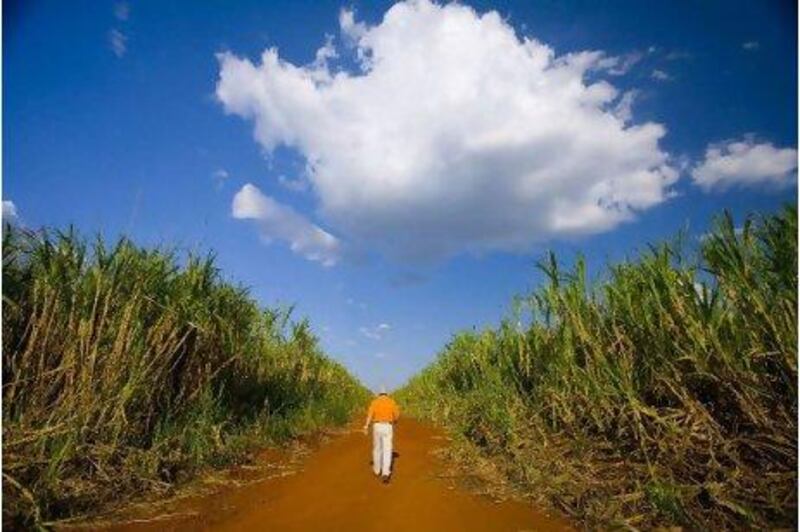BP may have offered 800 million Brazilian reals (Dh1.71 billion) for 50 per cent of the sugar and ethanol group Cerradinho, even as it seeks to raise up to US$30bn (Dh110.17bn) from sales of petroleum assets to pay costs related to its Gulf of Mexico oil spill.
The putative deal could be BP's second in the biofuels sector since the catastrophic spill, highlighting the strategic role of biofuels in the company's alternative energy programme and of Brazilian biofuel assets in particular.
A BP spokesman yesterday declined to confirm whether the company had made a bid for half of Cerradinho, an indebted Brazilian enterprise headquartered in the commercial district of Catanduvo, near Sao Paulo. But BP undoubtedly has Brazilian biofuels assets on its radar screen.
"Brazil is certainly of very great interest to us for biofuels production," the spokesman said.
The Sao Paulo newspaper O Estado said BP had been in talks with Cerradinho for six months and that a decision was expected soon.
"The two parties currently have an exclusivity agreement for the negotiations," O Estado said. "If the bid is rejected, Cerradinho will analyse offers made by other groups such as Cosan, Bunge, Louis Dreyfus and Noble Group."
Analysts have suggested BP is trying to clean up its image following the blowout of its deepwater Macondo Well in April, which spilled more than four million barrels of crude into waters off the US Gulf coast. In July, the company announced it would acquire the cellulosic biofuels business of the US enterprise Verenium for $98.3m.
Companies engaged in the emerging cellulosic biofuels business are attempting to develop cost-effective processes to produce fuels from grasses, canes, softwoods and other plants not generally grown for food.
Before the Macondo accident, however, BP was already involved in Brazil's fully commercialised biofuel industry based on sugar cane. In 2008 it bought 50 per cent of the ethanol producer Tropical BioEnergia in a joint venture with Santelisa Vale, the second largest Brazilian sugar refiner, and the family-owned Maeda Group.
"This is a coming together of two giant industries," Philip New, the BP vice president of biofuels, said at the time. "We do not believe any one company can operate in both arenas, so our partnership in Tropical allows both sides to bring their very best to the table."
BP would bring access to international fuels markets and fuel refining infrastructure, and its knowledge of fuels technology, to complement the local skills and contacts of Santelisa and Maeda and their experience in farming sugar cane and producing ethanol and sugar.
A growing use for ethanol in markets around the world is as a biofuel that can be blended with petrol to fuel cars. Brazil is the world's leading ethanol producer and the country that mixes the biggest proportion of ethanol into fuels sold in its petrol stations.
Other international oil companies have also taken positions in Brazil's rapidly consolidating ethanol industry. In February, Royal Dutch Shell announced a $12bn joint venture with Cosan, the world's largest sugar and ethanol group, which stands as the biggest ever foreign investment in Brazilian ethanol production.
BP may be expanding its presence in Brazilian biofuels while trimming its alternative energy investments elsewhere. In July, Oakfield Capital Partners, a Europe-focused private equity firm, acquired assets of the UK biofuels firm Coryton Fuels Technology from BP.





